Early Career Research Fellows
Recognising and supporting early career academic researchers generating knowledge that accelerates social impact.

Recognising and supporting early career academic researchers generating knowledge that accelerates social impact.
Open to academic researchers across the University of Oxford, this fellowship recognises and supports early career academics working to generate knowledge that accelerates social impact. The fellowship aims to:
Cultivate a community of early career academics at Oxford who are interested in social impact;
Deepen the Skoll Centre’s relationships with early career researchers in Oxford and beyond; and
Amplify early career researchers’ work through the Skoll Centre’s networks and public channels.
Early Career Research Fellows (ECRFs) will be invited to share their research by participating in research seminars and convenings, and contributing to the Centre’s action-oriented research agenda through research outputs such as case studies, playbooks, working papers, podcast episodes, videos, blogs, or student contact.
This is an unpaid position. However, fellows will receive a £1,000 stipend for professional development and research dissemination, and there will be opportunities for fellows to work with the Centre to produce actionable insights for academic and practitioner engagement.
Each fellow will be paired with a faculty mentor from SBS and may also choose to work with a second faculty mentor from another department. Your application should state any preferences, and whether you have an existing relationship with or have discussed this proposal with that faculty member. We encourage you to explore collaboration with the current Skoll Centre Fellows or any other SBS faculty.
The Centre welcomes applications from current academic researchers based at the University of Oxford (in any department) and within five years of completing a DPhil (up to eight years for those who have taken at least six months of parental or other care leave during or after their study). Candidates will be shortlisted based on the following criteria:
Academic research interest in at least one of the Centre’s core areas of work listed above;
Track record of and commitment to engagement in applied or translational research, and/or engagement with non-academic stakeholders (e.g. policymakers, the private sector, civil society, and social movements);
Demonstrated commitment to attending to issues related to equity, diversity, and inclusion in their research and/or other areas of work; and
Interest in building relationships with Saïd Business School faculty, Skoll Centre Visiting Fellows, MBA students, and other early career researchers.
The Skoll Centre believes that more diverse and inclusive teams foster innovation, and welcomes applicants representing diverse identities, disciplines, and schools of thought.
Collaborate with academics and practitioners in the Skoll Centre community to create actionable research insights for public dissemination
Attend and participate in Skoll Centre research events, including research seminars, workshops, the Skoll World Forum, and other convenings
Organise and deliver a research seminar or similar event at least once during the fellowship
Develop or contribute to a relevant research output (case study, video, playbook, report, working paper etc.) on a topic related to Skoll Centre themes
Produce an end-of-fellowship report summarising research activities and learning
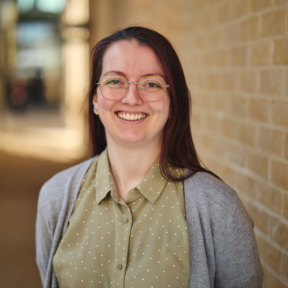
Schmidt AI in Science Fellow
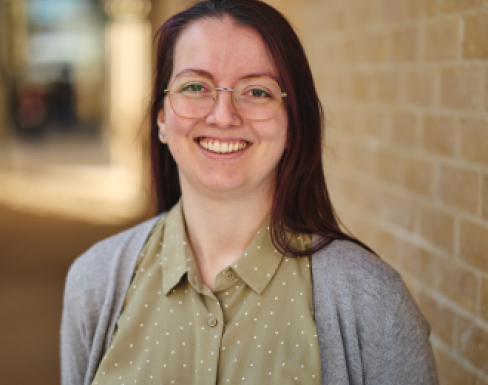
Dr Alycia Leonard is a Senior Research Associate in Energy Systems. She specialises in the spatial design of sustainable, inclusive energy systems that balance large-scale economic opportunities with local community needs. As a Schmidt AI in Science Fellow, she develops data-driven strategies to optimally target energy access interventions for maximum uptake and equitable impact. An engineer by background, she holds a DPhil in Engineering Science from Oxford, where she was a Clarendon Scholar, and a BEng in Electrical Engineering from Memorial University of Newfoundland.

Postdoctoral Research Fellow

Dr Astrid Krisch is a spatial planner and human geographer specialising in urban policy, sustainability transitions, and the governance of climate action. Currently a Postdoctoral Research Fellow at the Global Centre on Healthcare and Urbanisation, University of Oxford, she has held research and teaching roles at institutions including the University of Cambridge, TU Wien, and WU Wien. Her interdisciplinary research explores social innovations in urban provisioning systems and their role in climate justice and systemic transformation. As a Skoll Centre Early Career Research Fellow, Astrid will co-produce actionable knowledge with policymakers and communities to bridge research, practice, and policy impact.

Postdoctoral Research Fellow

Dr Hayley Pring is a postdoctoral researcher at Oxford’s Department of Politics and International Relations, working on the Climate Vulnerability Project. She received her DPhil and MPhil at Nuffield College, and her BPhil/BA from the Australian National University with scholarships from Nuffield, the Governor-Philip Foundation, and the James Fairfax Scholarship. Hayley's research focuses on the role of reputation in influencing firm behaviour in world politics, the political economy of climate change, and when climate vulnerable groups mobilise.

Postdoctoral Research Fellow

Ignacio Pérez Karich is a Postdoctoral Research Fellow on the Future of Mobility at the Oxford-Hyundai Motor Group Foresight Centre. His research explores the intersection of mobility, urban governance, and big data, focusing on socio-technical systems and the future of transport in diverse contexts. He holds a DPhil in Geography from the University of Oxford, and degrees from UCL and PUC Chile. Ignacio has worked with the UNDP, IDB, and leading think tanks, contributing to debates on smart cities, sustainable mobility, and data governance through interdisciplinary research, scenario planning, and ethnographic and computational methods.

Postdoctoral Research Fellow

Dr Tori Ford is a qualitative health researcher working as a postdoctoral research fellow within the Nuffield Department of Primary Care Health Sciences. She recently completed an NIHR Doctoral Research Fellowship examining gender health inequity and recurrent vulval pain. Tori is also the Founder and Executive Director of Medical Herstory, an award-winning social impact organisation on a mission to eliminate sexism, shame, and stigma from health experiences. She holds a BA from McGill University in Gender Studies and an MPhil from the University of Cambridge in Health, Medicine, and Society. Her work on advancing gender health equity has been recognised by the Rising Star Champion Award, the University of Oxford Paving the Way Award, and being named a Top 25 Woman of Influence.
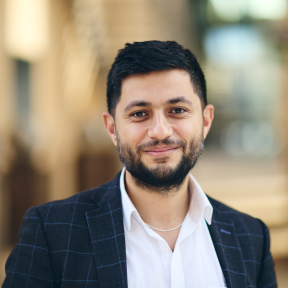
British Academy Research Fellow
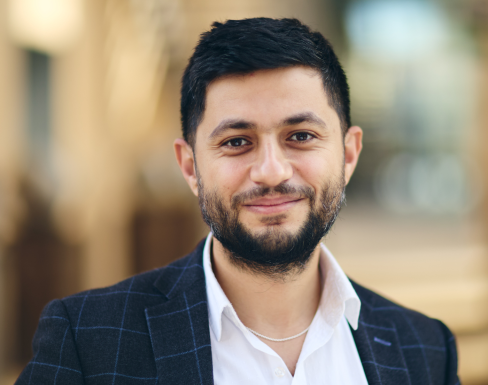
Ammar Azzouz is a British Academy Research Fellow at the University of Oxford. He is the author of Domicide: Architecture, War and the Destruction of Home in Syria (Bloomsbury, 2023), with a foreword by Lyse Doucet, the BBC’s Chief International Correspondent. Azzouz is the Principal Investigator of Slow Violence and the City, a research project that examines the impact of violence on the built environment at the time of war and peace. He has written for a wide range of platforms including the New York Times, the Guardian, and the New Statesman.
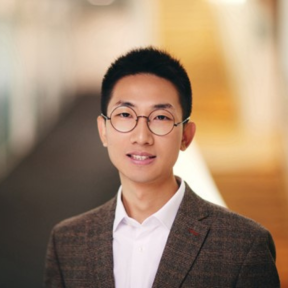
Postdoctoral Research Fellow
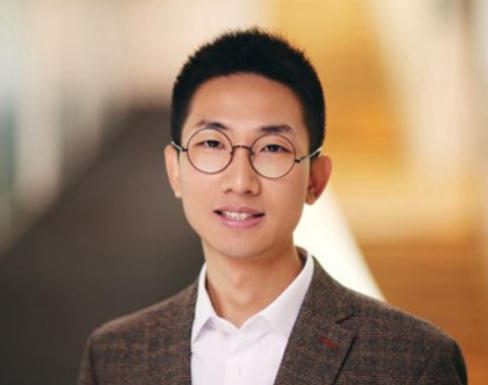
Cheng Lu is a Postdoctoral Research Fellow at the Oxford University Centre for Corporate Reputation, Saïd Business School. His research interests span the domains of social entrepreneurship and innovation, civil society organisations, corporate social responsibility, and state-society relations. Cheng is working with Paulo Savaget, who holds a joint appointment at Saïd Business School and the Department of Engineering Science, on a project investigating the legitimation of social enterprises in China. Cheng earned his master’s degree in Political Science from Peking University and completed his PhD in Management at the University of Edinburgh. Beyond his work at Oxford, Cheng has collaborated on several research initiatives with the Center for Civil Society Studies at Peking University, the Yunus Center for Social Business and Microfinance at the Renmin University of China, and the Nanyang Center for Emerging Markets at Nanyang Technological University.
Passionate about his field, Cheng seeks to bridge the gap between theory and practice, liaising with certifiers, funders, intermediaries and policymakers dedicated to cultivating a self-sustaining ecosystem for China’s social entrepreneurship and practice.
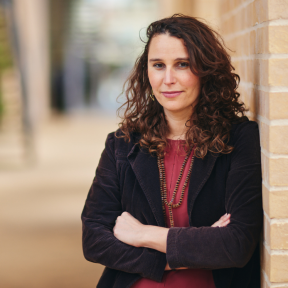
Independent Researcher
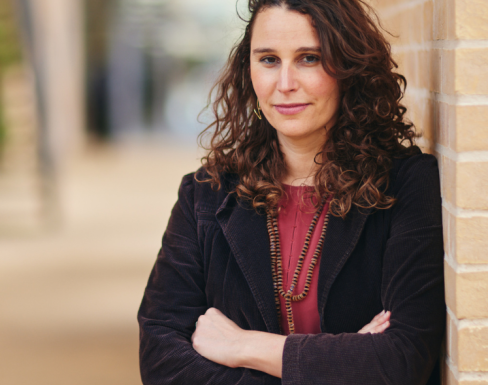
Laura is an independent researcher and policy advisor. She joined Oxford in 2022, as a Social Science Division Postdoctoral Fellow at the Oxford School of Global and Area Studies (OSGA). Until October 2024, she was Departmental Lecturer in Latin American Studies and Director of the Brazilian Studies Programme, at the Latin American Centre at OSGA. Her work revolves around various issues such as foreign policy, international development cooperation, policy diffusion, state-society relations, and open government. Her current research projects focus on the disputes surrounding the growing role of rising powers countries like China, India, and Brazil in the current geopolitical landscape and on multi-level governance in the Amazon. Prior to joining Oxford, she accumulated over 10 years of experience working for civil society organizations and think tanks, primarily in Brazil and the UK.

Researcher at Energy and Power Group

Dr. Pu Yang is a researcher for the Climate Compatible Growth project at Energy and Power Group. Her research intersects climate economics and sustainable finance, exploring how social impact can be monetized to motivate more ambitious climate actions. Her current focus is to measure the social economic benefits of energy transition to promote climate-compatible growth in Kenya, Zambia, and Vietnam, aiming to harmonize economic development with environmental sustainability.

Project Researcher

Dr Lennon Mhishi is a Project Researcher at Pitt Rivers Museum on the project Reconnecting 'Objects': Epistemic Plurality and Transformative Practices in and Beyond Museums funded by VW Stiftung. He is an anthropologist whose interdisciplinary work spans interests in Africa and its diasporas, the afterlives of slavery and colonialism, and the approaches to contemporary forms of exploitation, forced labour and human rights in different African countries. He has experience in migration and diaspora, heritage, music, and other arts-based, creative approaches to knowledge making and engagement. He is keen to pursue a research agenda, curatorial and museum practice that centres community-engaged, collaborative, antiracist, and inclusive practice.
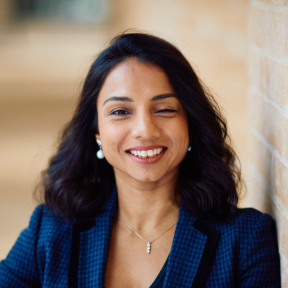
Senior Postdoctoral Fellow
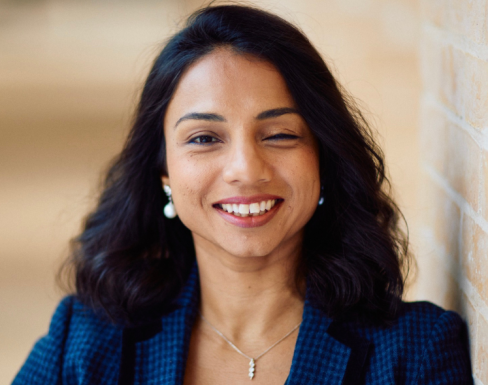
Dr Mahreen Khan is a Senior Postdoctoral Fellow at the Oxford Martin School, University of Oxford. She is a development economist focusing on issues of labour mobility and migration, human capital and skills acquisition, and youth entrepreneurship. Her current works explores the impact of non-cognitive skills, entrepreneurship accelerators, and large-scale labour migration on youth labour markets in low- and middle-income countries. She has extensive and diverse work experience in the international development sector. She completed her Ph.D. from MIT Sloan School of Management. She holds a Master’s in Applied Economics from Paris School of Economics, and dual Bachelor’s degrees in Economics and Management from MIT.

British Academy Postdoctoral Fellow

Dr Sugandha Srivastav is a British Academy Postdoctoral Fellow and lecturer in Environmental Economics at the Smith School of Enterprise and the Environment. Sugandha's work lies at the nexus of the economics of innovation and environmental economics. Her research explores how to bring early-stage technologies to market and the role of R&D support, advanced market commitments and other de-risking instruments. She explores how society can most efficiently incentivise investment in technologies that can reduce greenhouse gas emissions and deliver broad societal goals.
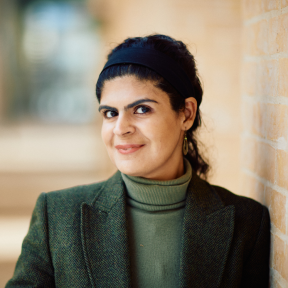
Researcher
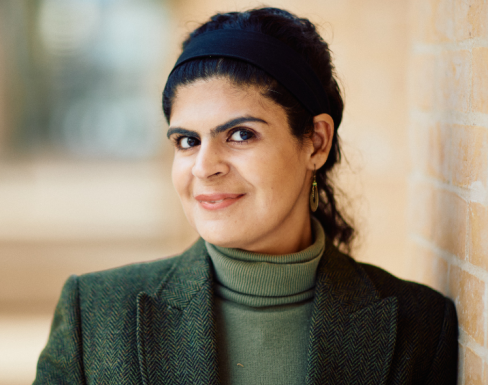
Dr Minerva Singh is a Researcher at the Nature Based Solutions Institute (NBSI), where she focuses on identifying the role of nature-based solutions in improving infrastructure resilience. From 2018-22, Dr Singh was a Research Fellow at the Imperial College London, where she focussed on implementing machine learning solutions for implementing and monitoring Sustainable Development Goals (SDGs). She has more than a decade's experience working at the interface of AI and SDGs.
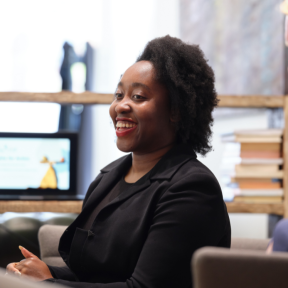
Postdoctoral Researcher

Dr Adaku Jennifer Agwunobi is a Postdoctoral researcher in the Department of Engineering Science, working on orthopaedic clinical tooling. She was the first Black doctoral researcher to obtain a PhD at Loughborough University London, where her PhD focused on the well-being of Black entrepreneurs. She has two Masters degrees: an MSc Health Economics and MSc Marketing (with Distinction). Additionally, her first degree was BSc (Hons) Economics.
In addition to her academic research, Adaku is an entrepreneur, recently winning an Oxford Hub Social Enterprise Award for her tech-savvy natural hair care and wellness brand called ‘hairgoals’.

Director

Oscar worked as a doctor in Hauora Tairāwhiti (a rural NZ hospital), and Counties Manukau (Auckland) before taking up a Rhodes Scholarship and moving to Oxford for his DPhil in Healthcare Leadership Development.
Oscar’s teaching and research focuses on supporting real-world impact from leadership development in healthcare through impact-focused evaluation.
Oscar is currently Director at Thrum Leadership Ltd.

Course Director & Departmental Lecturer

Dr Laurence Wainwright is Course Director of the MSc in Sustainability, Enterprise and the Environment and a Departmental Lecturer. A teaching and learning oriented academic, Laurence has 12 years experience in lecturing, facilitation and supervision across universities in Australia, Sweden, the United States, and United Kingdom. Laurence is passionate about the holistic development of the students who he teaches and helping them to develop into well-rounded individuals with a mindset of intellectual curiosity and courage, continuous self-improvement, and service to a mission beyond themselves.
Laurence's research interests and teaching areas are multidisciplinary and diverse. They include sustainability and corporate social responsibility; mental health impacts of climate change; strategy, management, leadership; and precision psychiatry, psychopharmacology and drug repurposing. In addition to his role in the Smith School, Laurence is a Research Fellow at Green Templeton College, an Early Career Research Fellow, and a Contributor Researcher and Facilitator in the Department of Psychiatry.

Senior Research Fellow and Director, Ownership Project 2.0

Bridget is an economic anthropologist and Senior Research Fellow at Oxford Saïd, where she is Director of the global research Initiative, Ownership Project 2.0: Private Capital Owners & Impact. Bridget received her PhD in Economic Anthropology from Johns Hopkins University, where she was a National Science Foundation Graduate Research Fellow and a Fellow of the Institute for Money, Technology, and Financial Inclusion. With a focus on economic topics in South Asia, she was a Fulbright Scholar to Bangladesh, Fellow of the American Institute of Bangladesh Studies and Language Fellow of the American Institute of Indian Studies to support Bengali language proficiency via full-time language study in Kolkata, India. Bridget was previously a fellow in residence at the WZB (Centre for Social Science Research) in Berlin and has served on the World Economic Forum's Global Futures Council for Development Finance.
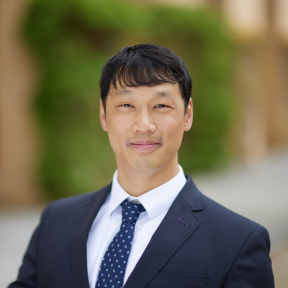
Research Assistant
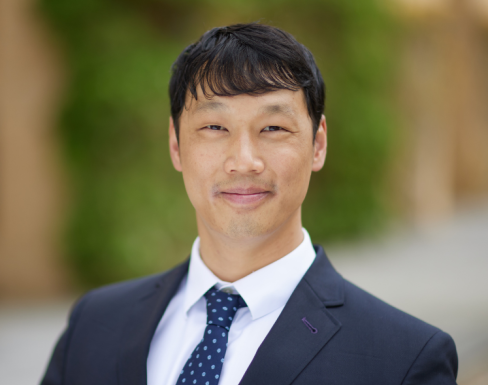
Kevin is a Research Assistant at the Oxford Sustainable Finance Group working on spatial finance. His research looks at the impacts of Belt and Road Initiative infrastructure projects and investments on climate change, the environment, and sustainable economic development in recipient countries across Asia.
He holds a DPhil and MSc in economic history from Oxford University, and a BA from Northwestern University. His thesis examined the long-run impacts of colonial infrastructure projects and investments on long-run economic growth and development in Asia, and how such developments impacted climate and agricultural shocks, spatial and regional inequality, and poverty. He has also worked as a policy researcher with the UK Department of Business, Energy, and Industrial Strategy, studying technology, innovation, and finance, and as a researcher with the Institute for New Economic Thinking.
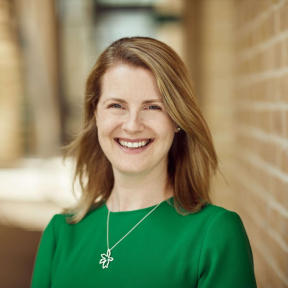
Senior Fellow in Management Practice
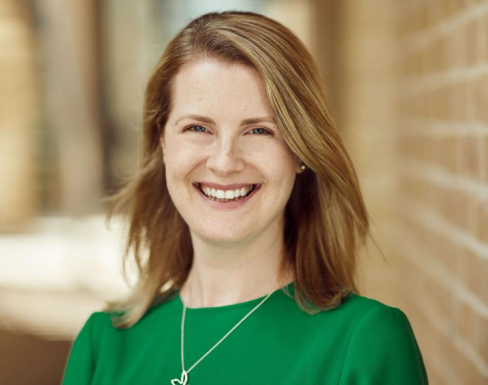
Mary is Senior Fellow in Management Practice. At the University of Oxford’s Saïd Business School, she has also served as Senior Research Fellow and Founding Programme Director of The Ownership Project and is currently a Skoll Centre Fellow and Co-Director of the Oxford Leading Sustainable Corporations programme. Mary is a Senior Associate of Oxford Net Zero, a member of the Jury of the IMD-Pictet Sustainability in Family Business Award, has also served as a World Economic Forum Global Futures Council Fellow and is Chair of the Board of B Lab UK. Her research explores how business is affecting our world, and how leaders build strategy around the public good. She has a longstanding research interest in women in business.
Her co-authored volume on sustainability leadership is slated for publication in 2023, and she serves as an advisor to several businesses on sustainability and impact strategy.

Senior Research Fellow

Abrar is a Senior Research Fellow at the University of Oxford’s Saïd Business School and Green Templeton College. With over 25 years of global experience in bridging research and practice, Abrar's work focuses on developing systemic approaches to address complex environmental and sustainability challenges. His expertise spans climate resilience, climate finance, business sustainability and strategy implementation. Previously a British Academy Fellow in climate finance, Abrar has collaborated with governments, funders, and global institutions to tackle the climate funding gap in emerging economies. He co-leads the Sustainability and Systems Transformation Learning Lab at Oxford’s Skoll Centre, pioneering action-oriented research and developing tools to help leaders shift mindsets and practices towards systemic change. He also supports the United Nations Development Programme on blended finance for scaling climate resilience in emerging countries and co-leads the Oxford Climate-Tech Initiative. His collaborations include projects with EY Global on corporate purpose as well as climate research funded by the World Bank, UKAID, FAO, UN, USAID, and others across more than 15 countries
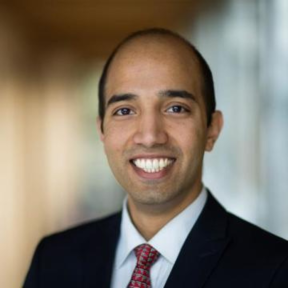
Sustainable Operations Researcher
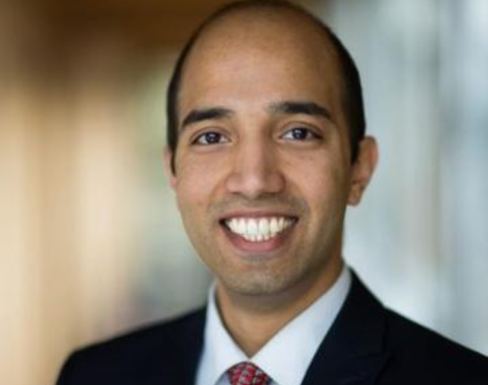
Sudhir Rama Murthy is an operations management researcher at Cambridge. His focus is on sustainable industrialisation in a changing world. He holds a PhD in Engineering from the University of Cambridge, where he specialised in sustainable manufacturing. Related to that work, he co-edited a book on sustainable manufacturing and post-globalisation for Springer in 2019. Subsequently, he was a Research Fellow at Saïd Business School, University of Oxford, where he led research on responsible business and systems change.